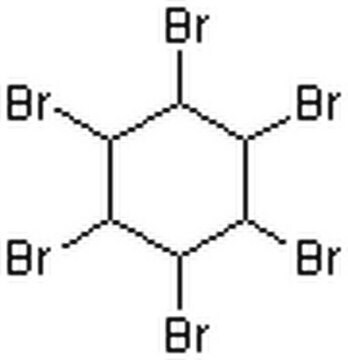About This Item
77 mmHg ( 20 °C)
Recommended Products
vapor density
2.9 (vs air)
Quality Level
vapor pressure
168.8 mmHg ( 37.7 °C)
77 mmHg ( 20 °C)
Assay
≥99.9%
form
liquid
technique(s)
HPLC: suitable
impurities
≤1.0 ppb Fluorescence (quinine) at 365 nm
<0.01% water
evapn. residue
<0.0001%
halogenated residue
<10 ng/L (as heptachlor epoxide)
refractive index
n20/D 1.426 (lit.)
bp
80.7 °C (lit.)
mp
4-7 °C (lit.)
λ
H2O reference
UV absorption
λ: 200 nm Amax: 1.00
λ: 225 nm Amax: 0.17
λ: 250 nm Amax: 0.02
λ: 300-400 nm Amax: 0.005
application(s)
food and beverages
SMILES string
C1CCCCC1
InChI
1S/C6H12/c1-2-4-6-5-3-1/h1-6H2
InChI key
XDTMQSROBMDMFD-UHFFFAOYSA-N
Looking for similar products? Visit Product Comparison Guide
Related Categories
General description
Application
Signal Word
Danger
Hazard Statements
Precautionary Statements
Hazard Classifications
Aquatic Acute 1 - Aquatic Chronic 1 - Asp. Tox. 1 - Flam. Liq. 2 - Skin Irrit. 2 - STOT SE 3
Target Organs
Central nervous system
Storage Class Code
3 - Flammable liquids
WGK
WGK 2
Flash Point(F)
-4.0 °F - closed cup
Flash Point(C)
-20 °C - closed cup
Choose from one of the most recent versions:
Already Own This Product?
Find documentation for the products that you have recently purchased in the Document Library.
Customers Also Viewed
Our team of scientists has experience in all areas of research including Life Science, Material Science, Chemical Synthesis, Chromatography, Analytical and many others.
Contact Technical Service










